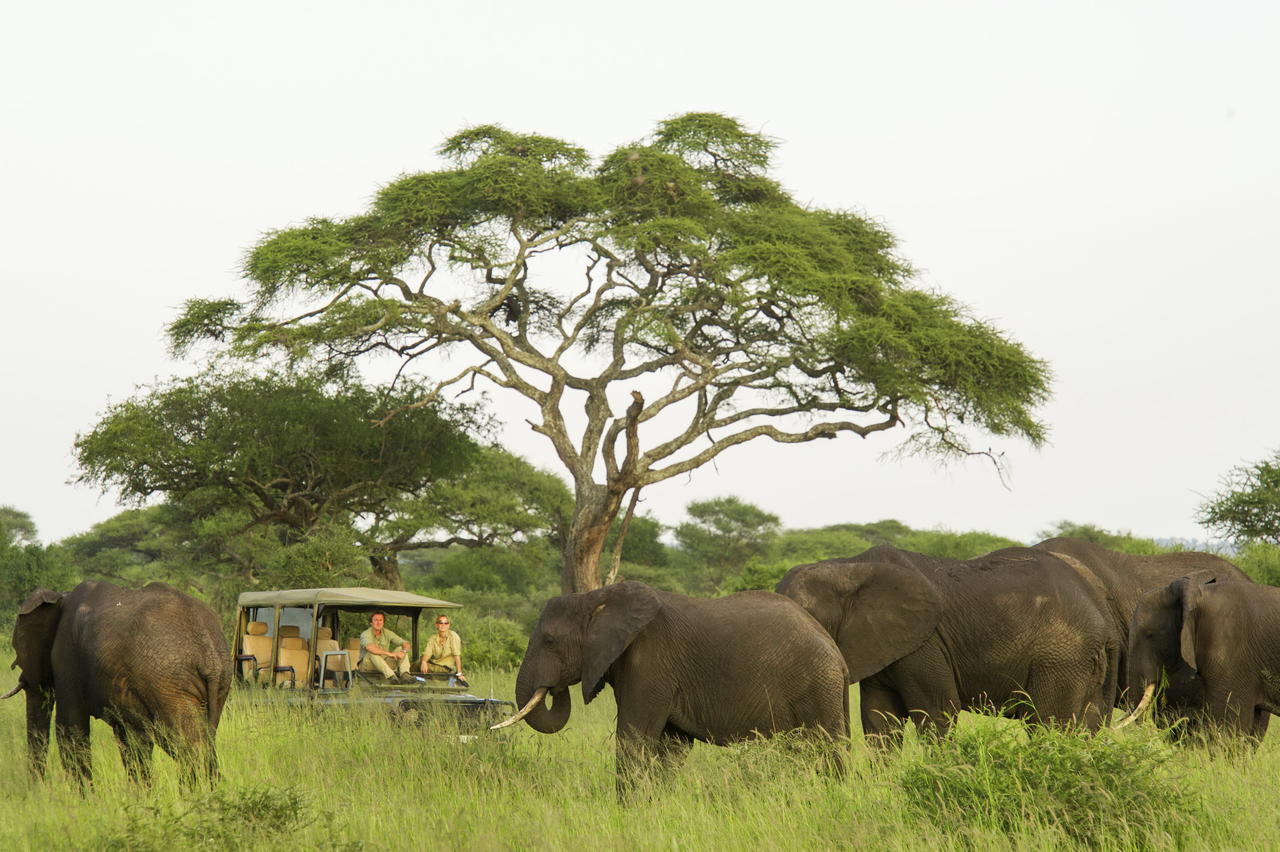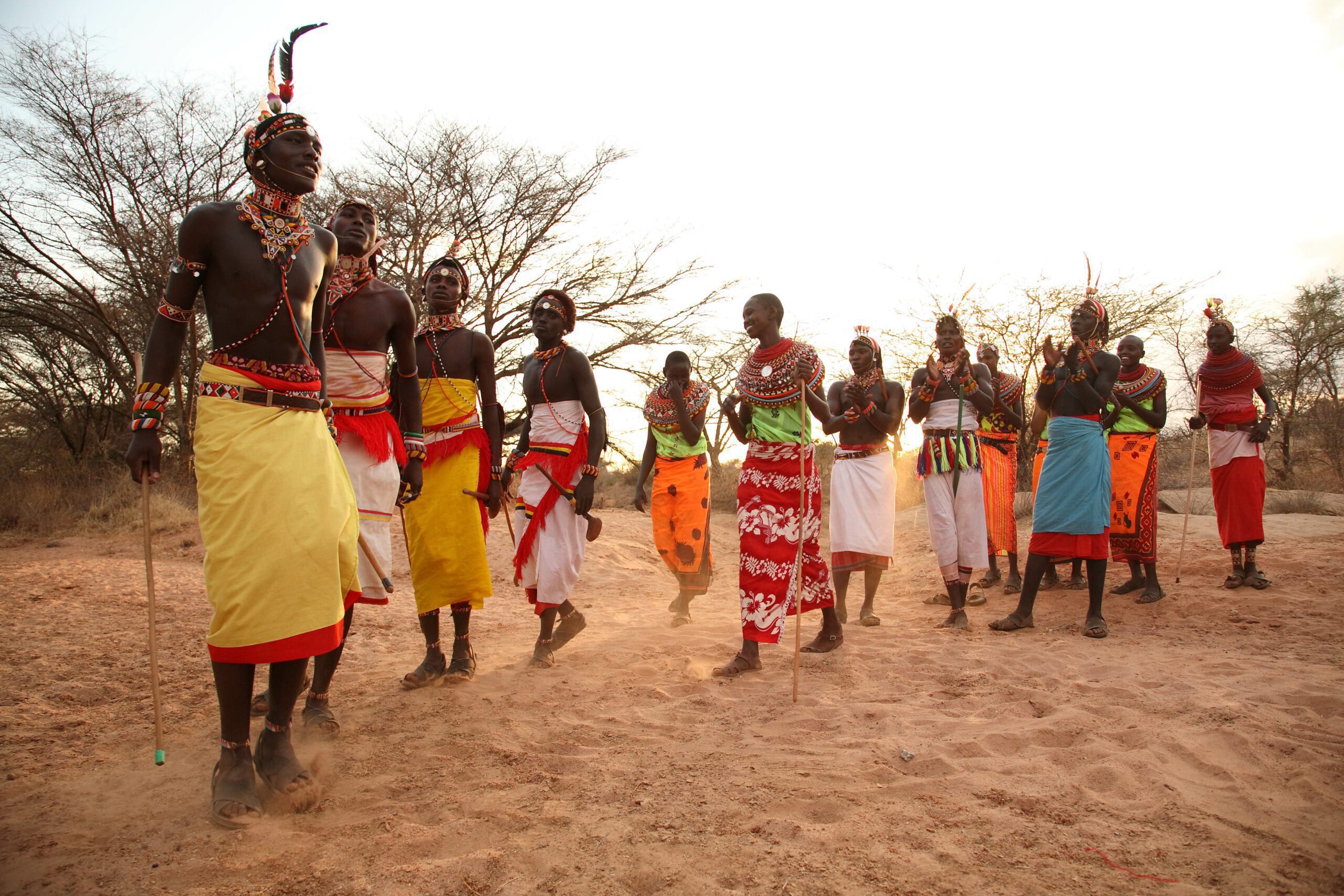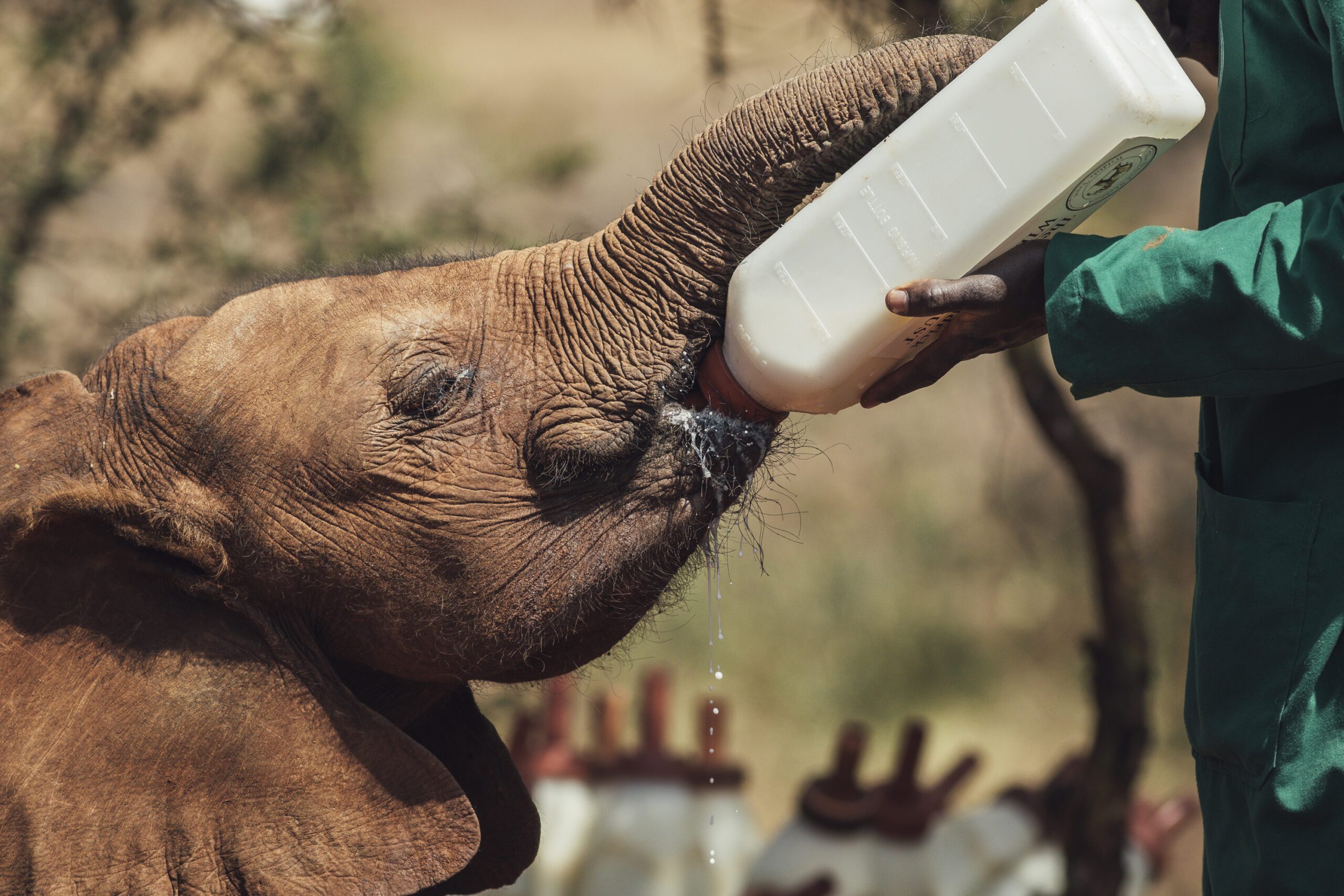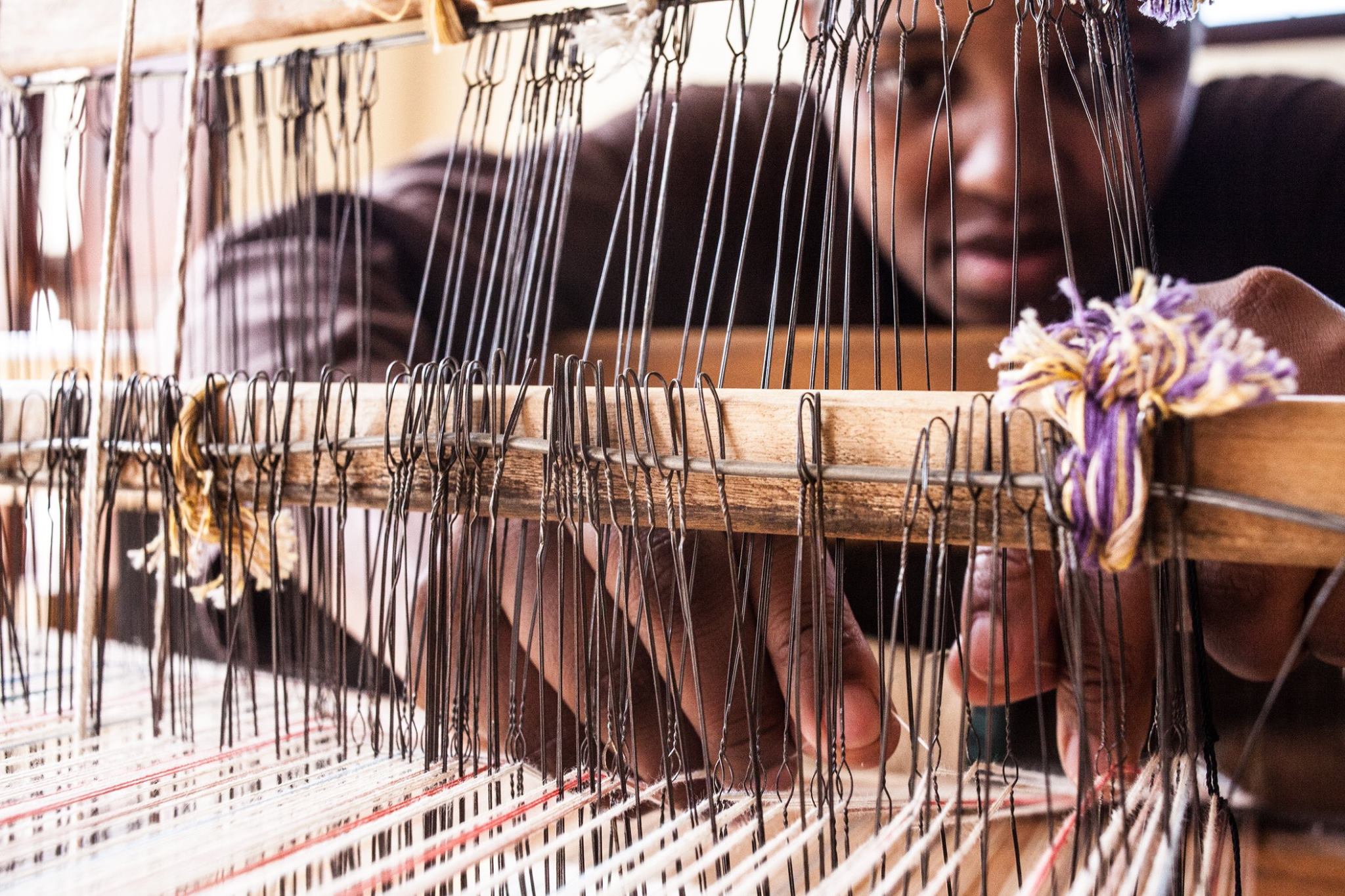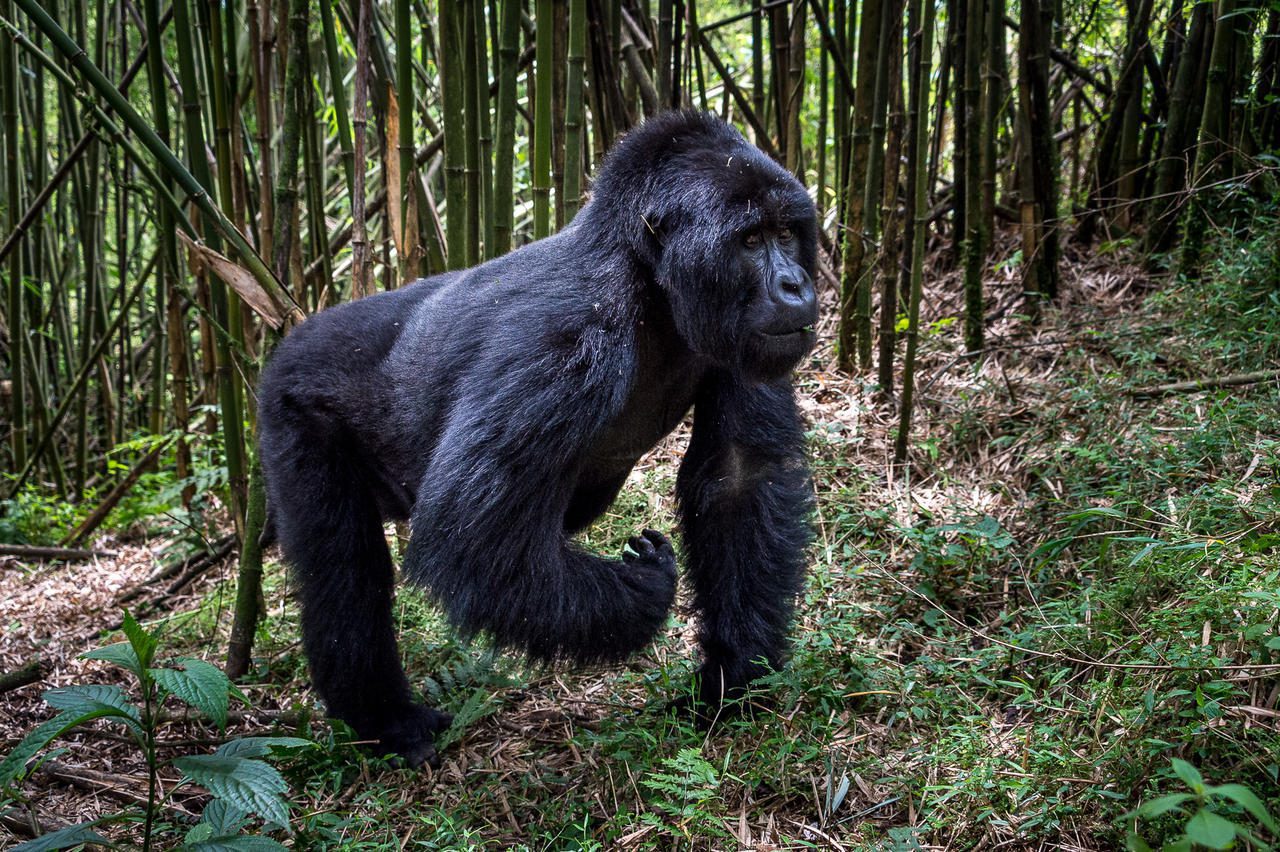“Every man’s life ends the same way. It is only the details of how he lived that distinguish one man from another.”
–
The word ‘safari’ conjures up images of Ernest Hemingway in Green Hills of Africa in the 1920/1930s. All that romance and adventure still exists, but most hunting today is with a camera instead of a gun.
Nowadays, safaris in Central and Southern Africa are central to conservation. Revenue from tourism is the pillar of economic development in many of these countries so it is in everybody’s best interest to protect the wildlife that fuels the tourism. There is also a developing pride in their wildlife and wild places as well, as for their intrinsic value. Thus, safari has made it more economical to protect wildlife than to poach wildlife.
Admiring elephants on a game drive. ©Chem Chem Safari Lodges
That said, poaching is still very tempting to unemployed local people who often earn the equivalent of 5 US Dollar per tusk. More and more safari camps and lodges are focused on community involvement and on engaging local community stakeholders through job creation, education and training. It is local community involvement in tourism and wildlife conservation that is more effective as a deterrent approach for poaching than traditional conservation law. Essentially, working directly with communities to make sure members are receiving benefits from conservation efforts is the most impactful conservation model.
Furthermore, many camps and lodges build schools in these communities to educate and to change the perspective of animals as a nuisance, to save the animals rather than destroy them. Many guests at the camps and lodges have the opportunity to visit local communities to learn about life in the village and to engage with local children at the school. There are even packing lists of much-needed donations you can bring the children if you save just a little room in your bag.
Visiting local school children.©Chem Chem Safari Lodges
The quality safari camps and lodges employ 90 percent or more local community members on staff. In this way, you are getting a sense of place on safari and making global connections. From multi-day treks with Maasai warriors to Samburu warriors passionate about their land and culture, the experience is intimate and truly exceptional. Today safari is much more than passive viewing. Today safari is a two-way conversation and engagement with African people and wildlife.
The “luxury” experience in Africa has shifted to encompass this new definition of safari. Seasoned safari-goers are interested in a more holistic experience. Of course the fabulous game viewing is not to be overlooked, but the opportunities to participate in conservation efforts and meet with world-renowned scientists is oftentimes the most memorable experience for people on safari. For example, Extraordinary Journeys makes it possible for older children and adults to spend an exciting day with Samburu warriors, learning about the skills they need to succeed: spear throwing, jumping, tracking, building fires without matches, identifying health enhancing plants, etc.
Samburu warriors during a traditional song and dance ceremony. ©Saruni Safari Lodges
Before you safari even begins, stopover in Nairobi, Kenya at the Daphne Sheldrick Elephant Orphanage. Foster an orphan elephant or rhino for a special 5:00 pm visit. This is around the time the elephants come back from the park to get ready for bed. Watch as the keeper feeds the elephants with a bottle and you can even pet the trunk! Beforehand, learn about the Kenya tea industry from the spot where it all began, Kiambethru Tea Farm, where owner Fiona Vernon takes you around and explains how her grandfather started growing tea here. This teams up beautifully with a visit to the nearby Brown’s Cheese factory, also in Tigoni. These are real community affairs.
Feeding an elephant orphan. ©Daphne Sheldrick Elephant Orphanage
A short drive from Nairobi brings you to Lake Naivasha, the highest of the Rift Valley lakes, where you can stay in the gorgeous private home of renowned elephant research scientists Iain and Oria Douglas-Hamilton. The stately home was built by Oria’s Italian parents. Further afield, discover helicopter and biplane experiences as well as hikes to hidden waterfalls, fishing on Mt. Kenya and a host of other interesting and totally “out of the way” things to do.
If you are starting in Arusha, Tanzania, spend an afternoon volunteering with Jifundishe (Kiswahili for “teach myself”), one of only a handful of independent community libraries in rural Tanzania and part of a larger community project that includes clinic, micro-lending and other self-help projects. A great place to have lunch is Arusha Coffee Lodge where Shanga social enterprise workshops are located. The project hires 55 adults with learning and physical disabilities. It is a very happy place with wonderful items for sale.
Weaving work at Shanga. ©Shanga Foundation
Once you are on safari, you can participate in a rhino tracking experience: an amazing walking safari that provides a uniquely thrilling adventure but also offers you the opportunity to help preserve this endangered species. Play a role in administering medication, taking measurements for scientific and medical purposes along with DNA samples for the national database. You will also have an opportunity to drill the rhino horns for the insertion of microchips and perform ear-notching procedures for future identification.
A game census safari ensures private reserves and their animal residents are thriving. In addition, a census is a vital tool to monitor the success of ecotourism and the luxury lodges’ and safari camps’ commitment to conservation in an area. It is important to have accurate numbers of game such as grazers, like buffalo, and browsers, like giraffe, so as to maintain a balance in the ecosystem and not over utilize the environment, which could cause permanent damage to the vegetation.
Help to track rhinos for research while on safari.
Gorilla tracking experiences are prime examples of how tourism and conservation go hand-in-hand. From Uganda, to Rwanda to the Democratic Republic of Congo, and more recently, the Republic of Congo, tourism is a relatively new but growing sector, which contributes to global awareness, local sustainable development and the protection of these invaluable ecosystems. Virunga National Park in the DRC is a real success story. Virunga is dedicated to protecting the world’s critically endangered mountain gorillas. The deep commitment of Virunga’s rangers, key politicians, conservationists and concerned individuals around the world enable the park to survive.
Mountain gorillas in Rwanda. ©Bisate Lodge
If you want to travel and make a difference, then safari is your next adventure. Not to mention, safari is the experience of a lifetime. Wield your influence wisely and make your money count. Expand your horizons and travel the world while meeting people and experiencing wildlife that you have only ever read about.
Plan Your Visit
Call or email us for more information about tailor-making your dream safari!
